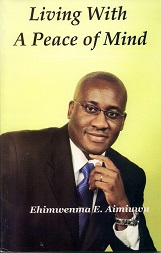 |
|
Lil. Joe: Thanks for this
article. In has been the most informative one that I have found
on the lives of the Black Pope.
Just yesterday morning on NPR I
heard an interview about the Papacy. In Europe, the Catholic
congregations are diminishing. In Ireland, whose people we known for
being Catholic, for example, priests have left and the Church has
had to import priests. Africans priests, Nigerians specifically
have taken up the charge to serve in these critical areas.
Otherwise, those areas would be without a priest.
I recall, on the interview, on
Nigerian priest said that Catholicism in Europe is "quiet", whereas
mass is "celebrated" in African. Cultural differences caused for
adjustment on the part of both priest and parish.
The interesting message in your
article is that the former Popes lived in a time when the concept of
"race" was not what it has now become. Where those African Popes
of old were accepted, today, according to the radio broadcast, some
churches have closed because the priests were not
taken from the local people, but "imported."
Since the new Papacy is a
decision that priests are praying about, politics is only part of the
decision. Is the world ready for a Black Pope? I don't know. The
Catholic world is largely Black and Hispanic, they may be more than
ready. Soon we shall know if the rest of the Catholic world is ready. I
stated earlier what area that I thought the Pope may be chosen, but it
is only a guess. We'll see. Adaoma
>
> ----Original Message-----
Subject: Fwd: Three Black Popes in History
Pope John Paul II's death has prompted intense discussion about his
eventual successor as the head of the Roman Catholic Church. Many
names are being tossed around as the next pope, including Cardinal
Francis Arinze of Nigeria.
|
|
The Political & Spiritual Purpose of the
Holy Land
 |
| |
|
If Arinze becomes the next pope, it might surprise
some Catholics as well as non-Catholics that he would be the fourth
black-African pope to lead the Catholic faithful.
The three black popes were:
Victor I (A.D. 186-197),
Miltiades (A.D. 311-314) and
St. Gelasius (A.D. 492-496)
All three were saints, having left their stamp on
Christianity and the Catholic Church.
An article in the April 16, 2001 edition of Newsweek titled "The
Changing Face of the Church" wondered if Cardinal Arinze could be the
first black pope. These kinds of inaccuracies are unnerving to Rev.
Barbara Reynolds. Reynolds, a minister and former columnist for USA
Today,teaches biblical studies at the Calvary Bible Institute in
Washington, D.C. She said a lot of the influence of Africans in
religious history is shrouded in secrecy. "I teach the black presence
in the bible, and it's almost like a secret code that hasn't been
broken."
Victor I, the 15th pope, is the reason Easter Day is
celebrated
universally on Sunday, said Reynolds. A native of Africa, Victor I
served during the reign of Emperor Septimus Severus, also a black
African, and one of several African emperors that led the Roman
Empire.
"It's important to recognize that while there were three black popes
in the early days from Africa, it was during a time when we didn't
have racial prejudice - there was no concept of race in the modern
sense," said biblical scholar Cain Hope Felder, of Howard University
School of Divinity. Felder, who holds degrees from Columbia
University, Oxford University, Union Theological Seminary, and Howard
University, said that historic "black popes" and the fact that many
people are startled at the prospect of Arinze becoming the next pope
are evidence of how modern racial prejudice is marginalized the
influence of blacks in world history.
"This was at a time when race didn't matter,"
Felder said emphatically. "But now the prospect of selecting an
African pope is seen as so dramatic and historic and even frightening
to some - it just shows how unfortunate and deep the race factor has
been in dividing people and distorting the gospel message," said
Felder.
Miltiades, the 32nd pope, is remembered as
the pope who led the church to final victory over the Roman Empire.
Though Miltiades ruled the church for only three years, his reign
witnessed one of history's turning points - the coming of Roman
Emperor Constantine and his conversion to Christianity in A.D. 313.
Miltiades was granted approval from Constantine that all Christians
would be free to worship without persecution.
Glaseius I, the 49th pope, was born
in Rome of African parents, taking office in A.D. 492. "Intelligent
and energetic, Gelasius I knew what steps he should take to establish
a secure future for the church," wrote Edward Scobie in the book
African Presence in Early Europe. Scobie, who died in 1996, was
professor emeritus at the City University of New York and a leading
expert and authority on the presence of Africans in early Western
Europe. Gelasius I," Scobie wrote, "saved Rome from famineand was
emphatic on the duty of bishops to devote a quarter of their revenue
to charity, stressing that 'Nothing is more becoming to the priestly
office then the protection of the poor and the weak.' It is little
wonder that he died empty-handed as a result of his lavish charity.He
used to call his temporal goods: 'The patrimony of the poor.'"
Reynolds said this religious history isn't just for black people.
"It's for white people to know the truth also. The
Bible says, 'You shall know the truth, and the truth shall set you
free.' It's not supposed to be one set of lies for white people and
one set of truth for black people."
Felder agreed, but added the church must embrace diversity if it's
going to survive and bring the truth to the masses. "We have allowed
race to matter too much. And if the church is going to have a future,
it's going to have to come up with a mandate for diversity and seeing
beyond color,"said Felder.
|
|
|
![]()